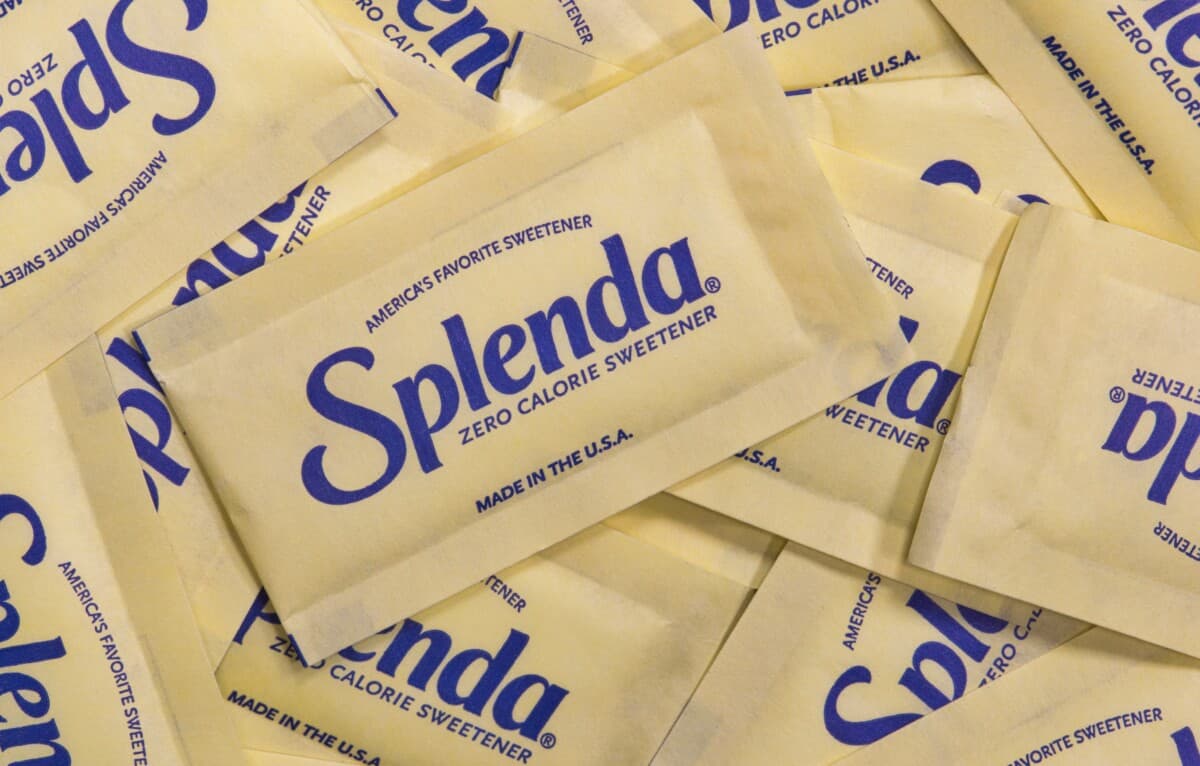So is it bad to eat before bed or not?
Most people assume it’s bad to eat before bed as you heard so from friends, family, co-workers and even some doctors.
It’s become culturally accepted if you eat too late and before bed, it’ll make you fatter. But there are more and more experts these days claiming a bedtime snack won’t make you lose weight.
At the end of the day, most people think a calorie is a calorie. This is in large part true, but it’s definitely not the whole story.
If that were true then you could theoretically eat some Twinkies and drink diet sodas all day and still lose weight.
You might’ve heard eating too late before bed will slow your metabolism. This will cause you to store all those late night calories as fat.
Yet, there is no hard evidence finding that calories you eat before bed will count more than the ones you eat earlier in the day.
But at the same time eating a pint of Ben & Jerry’s Chunky Monkey while you watch The Real Housewives of Orange County is asking for trouble.
It can be super confusing trying to find out the truth about whether or not eating before bed is bad for you. I’ll lay out everything you need to know.
Here you will find out for sure exactly what to eat before bed so you don’t have to starve yourself while you sleep.
Eating Before Bed: Good & Bad

Most conventional knowledge says again before bed is bad for you because your metabolism will slow down and you obviously won’t be burning off these excess calories while you’re sleeping.
It’s generally assumed eating your meals early in the day is best. This way you’ll burn off those calories as you’re active during the day.
They say you’ll end up storing undigested calories as fat. Well, at least that’s what some so-called health experts want you to believe.
The truth is the calories you burn while you’re sleeping at night are the same as earlier in the day. Your body can burn through a few hundred calories while you sleep.
Your body is burning calories around-the-clock. Your body still needs the energy to keep your heart beating, your lungs breathing and to recover from a long day.
Your body will be working overtime to recover if you’ve been working out too. It’s going to be hard to completely recover from a hard workout if you’re not getting proper rest from lack of calories.
There are few studies finding that eating before bed can lead to weight gain. But when you read between the lines these studies suggest the participants gain weight because they’re eating too many meals and over-consuming calories.
It didn’t have much of anything to do with the timing of the meals.
This 2013 study followed 420 overweight and obese people throughout a 20-week weight loss diet. Researchers found the late-night eaters lost significantly less weight than those who ate earlier in the day. The researchers suggested that there is more to the story than just calories because they were all the same.
Researchers published in Nutrients found a different perspective on these studies in this 2015 meta-analysis.
They found no studies finding a link between late-night eating and weight gain. They found most of these studies were looking at those who work the night shift, eating large late-night meals and had irregular sleep patterns.
The latest research is finding eating a small protein-rich meal at about 150 calories can improve muscle recovery and the feelings of being full and young healthy males.
Why You Shouldn’t Eat Before Bed

Most people gain weight from eating before bed are doing so because they’re not just eating a small healthy snack.
The large meals they’re eating before bed become an extra meal for them as they’re eating excess calories for the day.
Most people find themselves eating late at night not only because of hunger but also out of boredom.
Some people like to unwind late at night by snacking on some junk food while they watch their favorite show after a long day at work.
Many people also are the hungriest at night which makes it easy for them to over consume on food before going to bed.
All too many people mindlessly over consume these bad foods at night as they watch TV and play on their phone while checking Facebook.
It’s very easy to overeat in these situations. This study by Cornell University found people who watched action-packed shows ate twice as many calories as people watching a lesser intense show.
Many people also don’t eat that much during the day because of busyness. This causes them to eat ravenously at night.
The can cause a cycle of unhealthy eating habits as you eat a lot at night, but then you’re not hungry the next day until nighttime.
Your metabolism doesn’t automatically switch to “fat storing mode” at night. But unhealthy eating habits right up until bedtime can cause you to gain weight.
Why Eating Before Bed Is Good For You

Don’t worry eating before bed isn’t all that bad as you might think.
This study found eating at night for overweight and obese sedentary women resulted in improved appetite measures. But also be aware the participants resulted in increased insulin levels.
In a study by the Journal of American College of Nutrition found night snacking adults eating a bowl of cereal and milk 90 minutes after dinner ended up eating 400 fewer calories the next day.
Just a single change in their diet resulted in losing almost 2 pounds over the four-week study.
The researchers of the study suggested that late-night eating helped the snackers feel fuller longer the next day.
I like to follow the 3 Hour Rule when it comes to eating before bed.
Try to have your large dinner meal three hours before you go to sleep. This will give your body plenty enough time to digest the food out and move it out of your stomach and into the large intestine.
Eating a large meal right before bed can mess with your sleep as your body works to digest the large meal you just ate.
Eating Late at Night & Sleep Quality

There are studies finding many people who eat before bed find themselves sleeping better throughout the night.
There’s nothing worse than going to bed hungry and tossing and turning the whole night because you’re starving.
There’s a reason why your parents sent you to bed without dinner as a punishment.
In a study by the Archives of Internal Medicine, they found on average overweight and obese participants sleep 16 minutes less each night than normal weight people.
There is a definite link between sleep deprivation and weight gain.
Even the study by the American Journal of Clinical Nutrition found losing sleep resulted in excess overconsumption of calories.
You also lose willpower the next day if you are sleep deprived. I don’t have to tell you how much harder this will be sticking to your diet and workouts with less self-control.
If you’re working out hard then your body will need proper sleep to recover to allow the muscles to go. Getting a good night sleep is all the more important and will be difficult if you’re tossing and turning all night.
Allowing yourself to eat a small snack up until bedtime will help you feel better the next day.
Having a good night sleep improves your:
- immune system
- energy levels
- metabolism
- appetite
- willpower
- cravings
- weight
Your hormones are impacted when you’re sleep deprived promoting your body into a fat storing mode.
When you’re sleep deprived your body will produce more ghrelin, which is the hunger hormone. This will cause you to gain more weight.
And when you’re sleep deprived your body will also produce less leptin, which is a hormone that tells you to stop eating.
Bedtime Snacking Helps Your Blood Sugar

One of the reasons people have a hard time sleeping at night is because their blood sugar levels crash.
If you’re going to bed hungry then there’s a good chance of this happening.
This will cause your cortisol levels to increase promoting the storage of belly fat.
Your melatonin levels will also decrease, which is a hormone that helps you fall asleep in the first place.
When you’re sleeping your liver starts producing extra glucose (aka blood sugar) to provide you with energy to start the next day off strong and refreshed.
So if you’re not getting quality sleep you can expect to feel not at your best with lower energy levels the next morning. This investment will pay off while you sleep and into the next day.
This study found bedtime snacking could actually help prevent changes in blood sugar by providing your body with an extra source of energy to get you through the night.
But the researchers suggested that this may come on a case-by-case basis and may not apply to everybody.
What Not To Eat Before Bed

It’s kind of crazy to see all the things people eat before bed. This includes ice cream, pizza, hamburgers, fried foods, cookies, brownies with the list going on and on.
Eating desserts and junk food like this will cause you to gain weight no matter what time you’re eating it.
Desserts and junk food are very high in sugar, are heavily processed and contain unhealthy fats.
You should expect to gain weight when you’re eating heavily processed calorie-dense food like these.
It’s best to stay away from the desserts and junk food before bedtime.
Also, try to stay away from acidic foods especially if you suffer from acid reflux.
Spicy and fried foods should be limited before bedtime because they could disrupt your sleep.
Try to cut yourself off from caffeine early in the afternoon as well. Be careful as many soft drinks and teas contain caffeine without you even knowing it.
Alcohol will have a negative effect on your sleeping patterns. With drinking alcohol it makes it much more difficult to reach a deeper sleep cycle.
This is why you still feel tired the next day after drinking alcohol even though you slept eight or nine hours.
What To Eat Before Bed

My favorite snack to eat before bed is natural almond butter.
Whenever I’m feeling hungry before bedtime I’ll take one or 2 tablespoons of almond butter.
The healthy fats in almond butter will help to fill your stomach before bed. They also will help to keep your blood sugar levels stable throughout the night.
Eating more tryptophan containing foods has long been linked to improving the quality of your sleep.
This is why you find yourself in a Thanksgiving coma not too long after eating the big turkey dinner.
Eat more melatonin containing foods like cherries to help you fall asleep faster. This study found drinking tart cherry juice helped to improve insomnia.
Take a look at magnesium containing foods right up until bedtime. This includes dark leafy green vegetables and avocados.
In this study researchers found adults with insomnia improved their condition and quality of sleep after taking magnesium.
If you have a sweet tooth and can’t go without eating your ice cream then try a low-calorie version like Halo Top.
For more check out my list of the best foods to eat before bed.
Sorry eating Ben & Jerry’s Chunky Monkey ice cream doesn’t make the list.
Is it bad to go to sleep hungry?
I wouldn’t necessarily say it’s bad to go to sleep hungry but it can definitely impact the quality of your sleep. Your blood sugar might get too low so you might end up tossing and turning all night instead of restfully sleeping. Also if you’re getting the hunger pains in the middle night then it’s also going to affect how well you sleep. For these reasons is not a great idea to go to sleep hungry.
Is it bad for you to eat late at night?
It really depends on what you’re eating and how well your processing the food. I wouldn’t recommend eating a double whopper with cheese right before you’re about to go to sleep. But taking a couple scoops of all-natural almond butter will help to fight away hunger pains and help you stabilize your blood sugar while you sleep during the night.
The Last Word
If you haven’t eaten anything after a long day then it’s better to go to bed with a full stomach than an empty one.
You shouldn’t have to starve yourself while you’re sleeping just because you think you might gain weight from eating before bed.
Going to bed hungry can result in disrupted sleep, which will have a much bigger negative impact on your weight than having a small bedtime snack.
You don’t have to never eat before bed again as it will never be sustainable or even realistic.
If you go to bed hungry you are much more likely you are to cheat on your diet the next day and even skip your workouts.
Just make sure you’re not eating any heavy desserts or junk food before bedtime as that will cause you to gain weight.
The trick is to have a small low-calorie snack that will help fill your stomach before you go to sleep.
Your body will still burn off calories while you’re sleeping. So there’s no reason why you shouldn’t eat something small before you go to bed, especially if you’re hungry.
Josh holds a Bachelor’s degree in Exercise Physiology and Nutrition Science. He’s a Certified Strength and Conditioning Specialist (CSCS) by the National Strength and Conditioning Association and he’s a Certified Personal Trainer (CPT) by American Council on Exercise. He’s worked as a Strength and Conditioning Coach at the high school and college levels. He has over 15 years of experience as a personal trainer and nutrition coach. He strives to bring inspiration and results for people to live healthier lives through smart diet and exercise.









